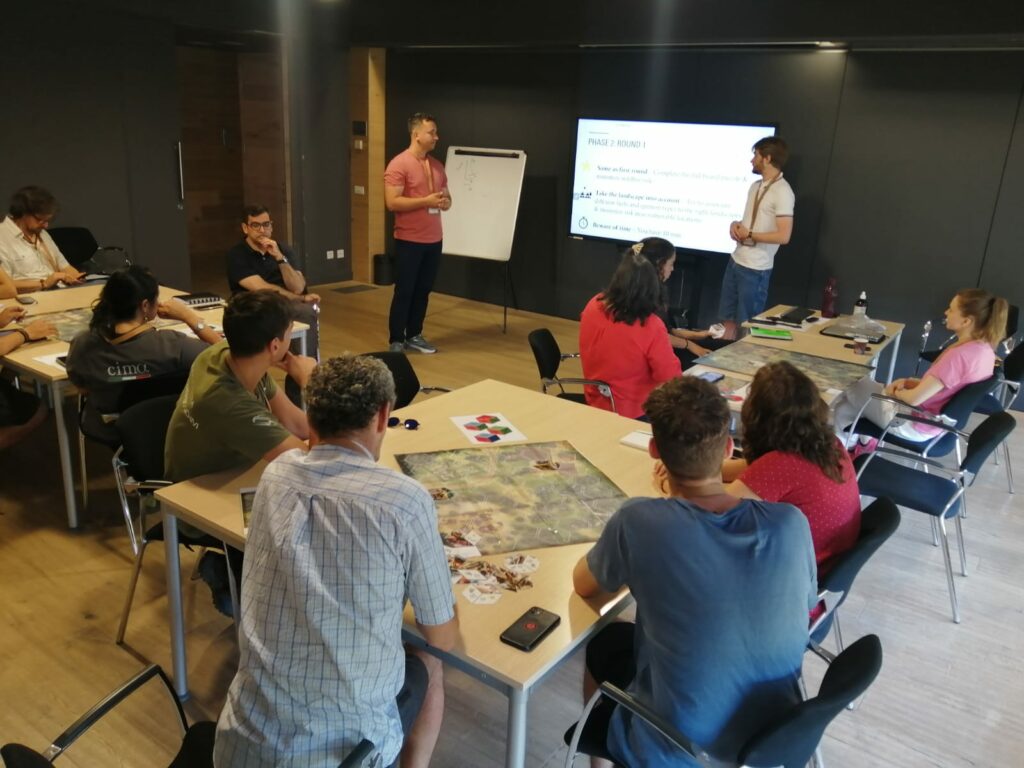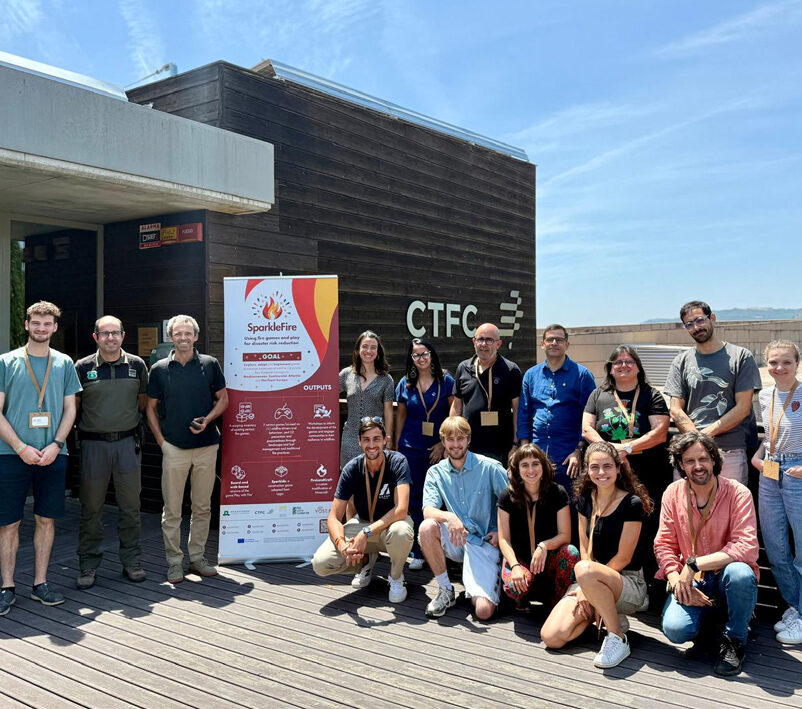Wildfires are becoming increasingly intense in regions where they have traditionally been common, and are now also affecting new areas with little knowledge, public awareness, or preparedness. In this context, wildfire education becomes a key tool for disaster risk reduction (DRR).
Games and playful learning experiences offer an innovative and effective way to engage the public and raise awareness of wildfire risk, both among children and professionals. This growing educational approach enables the communication of complex concepts in an accessible, participatory, and engaging manner.
With this aim, the Forest Science and Technology Centre of Catalonia (CTFC) is participating as a partner in the European project SparkleFire: Playing with Fire for Disaster Risk Reduction, which seeks to foster community involvement and proactive participation in understanding and reducing wildfire risk through the design and development of educational games tailored to four European bioregions: Atlantic, Mediterranean, Central, and Northern.
Funded by the European Commission’s Directorate-General for Civil Protection and Humanitarian Aid, will run for two years (February 2025 – January 2027) and involves the participation of the Pau Costa Foundation, VOST Portugal, the municipality of Paredes de Coura, and Wageningen University.
Adapting the Game to the Realities of Different Bioregions
The first phase of the project focuses on adapting and customizing the game to the different European bioregions (Mediterranean, Atlantic, Central European, and Northern European) through a participatory process. At CTFC, the Forest Policy and Risk Governance Group has led the task of identifying the specific needs of each region, with the aim of adjusting the game prototype to the realities of Civil Protection professionals. Through interviews and a workshop with experts from the four bioregions, regional DRR narratives have been integrated into the game design.

Preliminary Results: Shared Challenges and Regional Differences
One of the project’s initial findings is that, despite regional differences, there are common challenges in wildfire risk management:
- Low perception of risk and preparedness, with a strong focus on response (fire suppression).
- A persistent gap between risk awareness and action.
- The need to tailor communication strategies to different audiences.
- The importance of establishing a clear social contract that defines the roles and responsibilities of institutions and communities.
In addition, significant differences between regions have been identified. Southern European countries have a long history of wildfire risk management, while in Central and Northern regions, this risk is only just emerging. However, the latter regions already have well-established communication and community risk management frameworks for other natural hazards, such as floods or avalanches, which can serve as useful references.
To address this diversity, it is recommended that the game include a variety of scenarios that allow players to explore both the shared challenges and the specific dynamics of each region, helping to better understand the diverse realities of wildfires across Europe. Interactive storytelling and adaptable content will be key to ensuring a relevant and effective educational experience that supports progress toward better-prepared societies.
Here you can find all the project information and results.
Other related information
- Publication Wildfire risk awareness and communication: analysis of good practices
- Project Efirecom: Efficient fire risk communication for resilient societies
- Project FIRE-RES: Innovative technologies & socio-ecological-economic solutions for fire resilient territories in EU landscapes
- Project EduFire Toolkit
- Platform Union Civil Protection Knowledge Network
- Platform Lessons on Fire
Last modified: 26 August 2025










